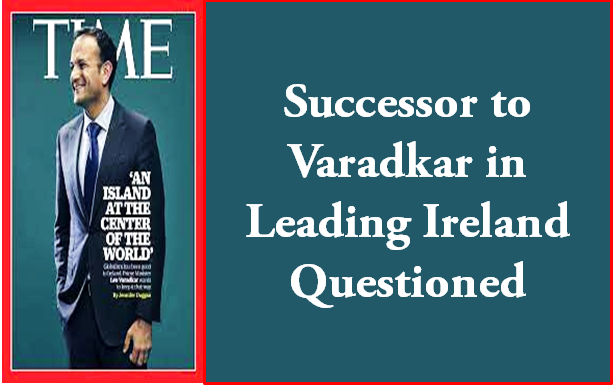Dublin: Leo Varadkar, the leader of Fine Gael and Prime Minister, stunned political circles with his unexpected resignation, introducing an air of uncertainty into Ireland’s political landscape. While party leaders have dismissed the notion of an imminent general election, the reasons behind Varadkar’s decision remain somewhat elusive, attributed to personal factors rather than external pressure.
Varadkar’s announcement of stepping down, conveyed during a meeting of the party’s Parliamentary Party, caught many by surprise, including EU officials and Irish politicians. Despite some initial resistance, Varadkar remained resolute in his decision, expressing gratitude to his party for their support throughout his tenure.
The meeting, chaired by party chair Alan Dillon, acknowledged Varadkar’s leadership over the past seven years, particularly noting his adept handling of challenges such as Brexit and the COVID-19 pandemic. Varadkar himself emphasised the need for new leadership within Fine Gael to navigate upcoming elections effectively.
Deputy Leader Simon Coveney, declining to vie for Varadkar’s position, endorsed the idea of fresh leadership within the party. He acknowledged Varadkar’s accomplishments as both party leader and Prime Minister, expressing support for the transition process within Fine Gael.
Speculation abounds regarding Varadkar’s successor, with Higher Education Minister Simon Harris emerging as a frontrunner, according to party insiders. Notably, Minister Peter Burke withdrew his support for Harris, while several councillors publicly endorsed him for leadership.
The leadership contest within Fine Gael is set to begin with nominations opening on Thursday, followed by a voting process involving party members over the subsequent days. The outcome will determine the party’s direction going forward, amid calls from various quarters for stability and progress.
Fianna Fáil leader Micheál Martin emphasised the importance of the government completing its term, highlighting key objectives in housing, healthcare, childcare, and budget planning. While acknowledging the challenges posed by Varadkar’s resignation, Martin emphasised the need for continuity and resilience within the government.
Varadkar himself has not indicated any immediate plans for his future within the party, asserting his intention to remain active in parliamentary affairs. His resignation has elicited congratulations and well-wishes from leaders both within Ireland and abroad, underscoring his significant contributions during his tenure as Prime Minister.
However, calls for a general election have emerged from various quarters, including the Union of Students in Ireland and political figures such as the UUP leader Doug Beattie. Meanwhile, voices from the far-left criticise the leadership election process within Fine Gael, citing concerns over representation and democracy.
Amidst these developments, the future trajectory of Fine Gael and Ireland’s political landscape remains uncertain, with Varadkar’s departure marking a significant juncture in the country’s political narrative.
Irish Samachar English News
{OR} Kindly click to follow the Irish Samachar News channel on WhatsApp


Comments are closed.